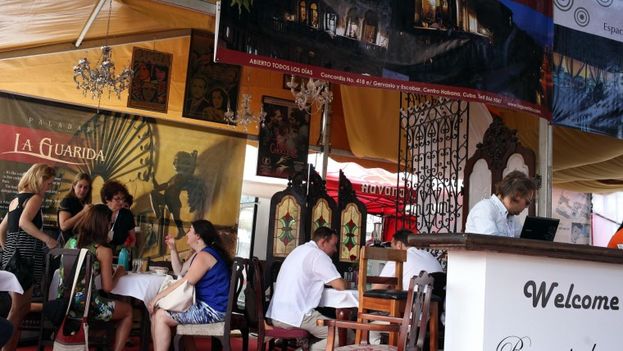
![]() EFE/via 14ymedio, Havana, 11 November 2016 — The number of self-employed in Cuba totaled 522,855 at the end of September, representing the addition of 15,513 people to the sector in the last six months and an increase of nearly 24,000 compared to the total of 2015, according to data broadcast on state media on Friday.
EFE/via 14ymedio, Havana, 11 November 2016 — The number of self-employed in Cuba totaled 522,855 at the end of September, representing the addition of 15,513 people to the sector in the last six months and an increase of nearly 24,000 compared to the total of 2015, according to data broadcast on state media on Friday.
Self-employment has maintained sustained growth since Raul Castro’s government expanded opportunities for the private sector in 2011, in order to boost the economy of the island and compensate for the phasing out of 500,000 state jobs between that year and 2015.
In 2012 the self-employed totaled 404,600, a figure which increased the next year to 424,300 and rose at the end of 2014 to 483,400, according to the state-owned newspaper Granma reporting on data from the National Bureau of Statistics and Information (ONEI) and the Ministry of Labor and Social Security.
In mid-2015, Cuba exceeded the milestone of half a million self-employed, and although the figure was reduced to 496,000 months later, the sector grew again in 2016 to the 507,342 workers recorded in May, and increased to 522,855 six months later.
Some 65% of self-employed workers are concentrated in the provinces of Havana, Matanzas, Villa Clara, Camaguey, Holguin and Santiago de Cuba, and 11% of them are dedicated to the restaurant industry, which employs 58,993 people.
In this sector, which includes the most famous paladares – as private restaurants are called – 1,870 were granted licenses this year compared to the 1,650 authorized in 2015 and 1,570 in 2014.
A series of inspections to uncover alleged irregularities in the establishments and the suspension of the issuing of new licenses to paladares in Havana between September and October sparked concern in this sector, one of the most dynamic in the economy of the island, but as of 24 October licenses are again being issued.
Cuban authorities deny that these measures are due to a backtracking in the state policies to open private sector opportunities, and say that their intention is to guarantee that the restaurants comply with the law.
The expansion of private labor is one of the major reforms of the government of Raul Castro to “update” the socialist economic model in Cuba which, as of today, authorizes 200 different work activities in which the self-employed may engage.
